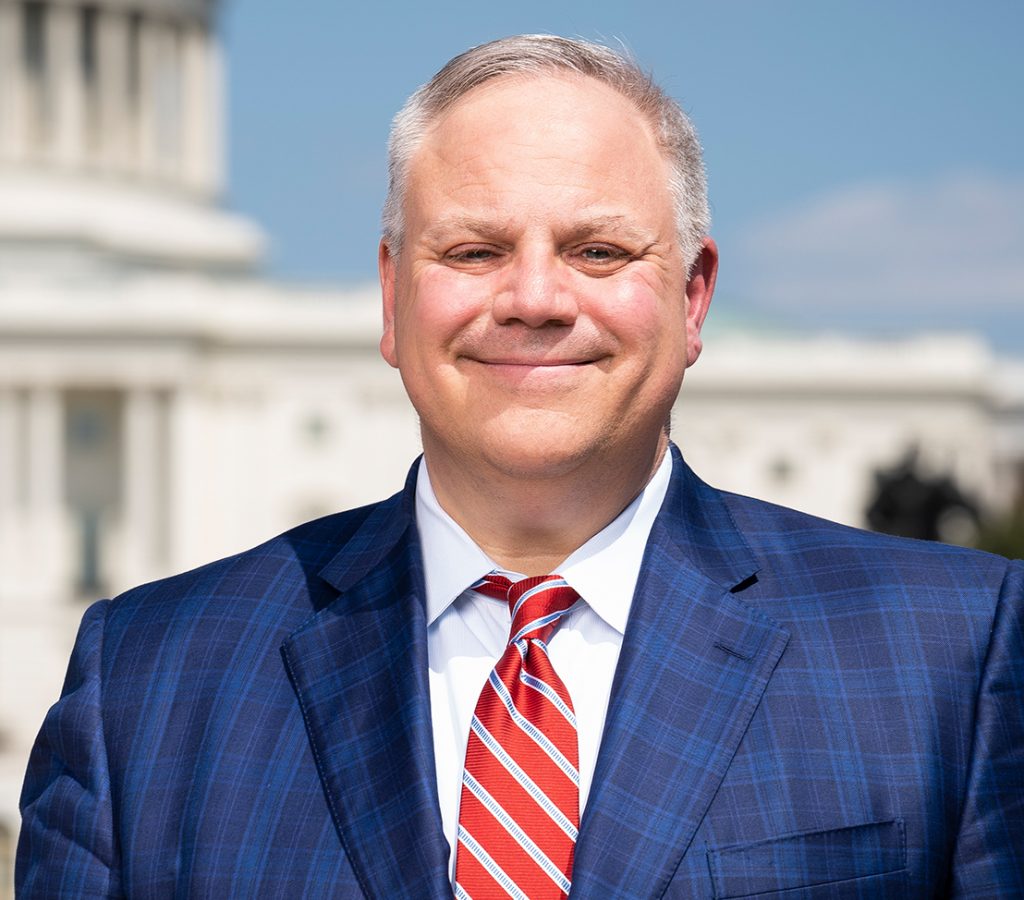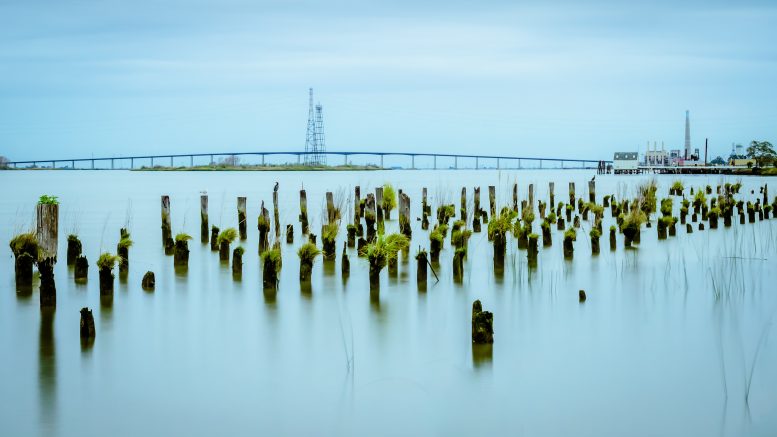Former Interior Secretary David Bernhardt, who played an outside role in California’s water policy, could face criminal charges
By Dan Bacher
David Bernhardt, a former Interior Secretary under President Donald Trump and lobbyist for Westlands Water District – an official who oversaw the creation of what critics call an environmentally devastating, salmon-killing water plan in California – is back in the news over alleged bribery during his tenure as Secretary.
Natural Resources Committee Chair Raúl M. Grijalva (D-Ariz.) and Oversight and Investigations Subcommittee Chair Katie Porter (D-Calif.) made a criminal referral this week to the U.S. Department of Justice outlining evidence of a likely criminal quid pro quo between Trump administration officials, Bernhardt, and real estate developer Mike Ingram.
The criminal referral is the first one made by the Committee, which uncovered $241,000 in coordinated donations from associates of developer Mike Ingram to the Trump Victory Fund and Republican National Committee.
“Ingram is the owner of El Dorado Holdings, which proposed to build the Villages at Vigneto (Vigneto), a 28,000-unit housing and commercial development spanning more than 12,000 acres near the endangered San Pedro River in Benson, Arizona,” Grijalva and Porter wrote in their release. “Evidence from the Committee’s investigation strongly suggests that Ingram, and several other Arizona donors, gave nearly a quarter of a million dollars to the Trump Victory Fund and the Republican National Committee in exchange for the U.S. Fish and Wildlife Service (FWS) changing its position about a Clean Water Act permit for Vigneto.”

The redacted criminal referral to DOJ is available here: https://bit.ly/37AbiIf
“The findings of this investigation show us yet again that the previous administration cast career staff expertise aside while they handed out federal agency decisions to Trump’s buddies and big donors on a pay-to-play basis,” Chair Grijalva said. “The Villages at Vigneto may not be a household name for many Americans, but to Arizonans, it’s been a looming threat to our fragile desert ecosystem for years. Allowing the development of 28,000 homes, golf courses, resorts, and other commercial buildings to suck the San Pedro River dry during a time of unprecedented drought is nonsensical on its face and agency staff were right to be concerned.”
Grijalva added, “It seems Vigneto’s developer figured backroom deals with top Trump officials would be a more fruitful avenue for getting his way—it’s a shame he wasn’t wrong. I strongly urge the Justice Department to take up this investigation and make sure the right people are held accountable for what they’ve done and how they’ve betrayed the trust of the American people.”
Porter also stressed the matter was serious.
“An exchange of money for a specific government action is the clearest form of corruption there is, and Americans—Democrats, Republicans, and Independents—share an understanding that this kind of quid pro quo erodes our democracy,” Porter noted. “In this case, our oversight uncovered that the Trump administration’s Department of the Interior overruled local career professionals and reversed a longstanding position on environmental review requirements, just weeks after politically connected donors made nearly a quarter of a million dollars’ worth of contributions benefiting the Trump campaign. This concerning fact pattern demands additional fact finding, at a minimum, so the American people have answers on whether the Trump administration was acting in the public’s interest or the interests of the highest bidder.”
Environmental and fishery groups applauded the House Committee’s referral of Bernardt to the Department of Justice on allegations of criminal bribery.
“We said all along that David Bernhardt was too compromised and too corrupt to be a Cabinet secretary,” Jennifer Rokala, executive director of the Center for Western Priorities, said in a statement. “This is damning evidence of a straight up pay-for-play favor.”
John McManus, the President of the Golden State Salmon Association, observed on social media that “Bernhardt also ordered federal officials to adopt a salmon-killing water delivery plan in California.” He also stressed Bernhardt’s water plan was one that Westlands Water District and the Resnick family benefited from.
Located on the west side of the San Joaquin Valley, Westlands is the largest agricultural water district in the nation. The district has been a consistent advocate of increased water deliveries to almond, pistachio and fruit growers who farm drainage-impaired land on the west side of the San Joaquin Valley. Westlands is a big contributor to the campaigns of both Republican and Democratic politicians who support massive water exports to corporate agribusiness at – according to independent scientists – great expense to endangered Delta smelt, spring and winter-run Chinook salmon, Central Valley steelhead and green sturgeon.
The “Resnicks” that McManus mentioned are the billionaire owners of the Wonderful Company and the largest tree fruit growers in the world. They have contributed many millions of dollars to candidates from both sides of the political aisle and are major campions of the embattled Delta Tunnel.
Investigative background and details from the Natural Resources Committee’s probe
In April 2019, the Arizona Daily Star’s Tony Davis reported the whistleblower account of Steve Spangle, a now-retired Field Supervisor at FWS’ Arizona office, who claimed he was directed by a “high level politico” to reverse FWS’ position about whether issuance of Clean Water Act permit for Vigneto could potentially have adverse impacts on endangered species or critical habitat. Subsequent reporting revealed that then–Deputy Secretary Bernhardt directed the decision reversal. Spangle noted that he never received such pressure in his more than three decades in public service.
Additional reporting revealed that Dep. Secretary Bernhardt had a private breakfast meeting in Billings, Montana, with Mike Ingram on Aug. 18, 2017, two weeks before Spangle received the phone call directing him to reverse the Vigneto decision. The meeting was not disclosed in Bernhardt’s public calendar or travel documents. Then, on Oct. 6, 2017, Ingram made an unusual out-of-cycle $10,000 donation to the Trump Victory Fund. Less than three weeks later, on Oct. 26, 2017, Spangle officially reversed FWS’ decision on Vigneto.
New Evidence Uncovered in the Committee’s Investigation
The Committee launched an investigation into the Vigneto decision shortly after the incident was publicly reported. Committee staff obtained multiple document productions from DOI and El Dorado, conducted an in-camera review of documents at DOI, questioned then–DOI Chief of Staff Todd Willens, and reviewed Federal Election Commission records.
The Committee’s investigation uncovered several additional pieces of evidence in the case, which now warrants criminal investigation by DOJ:
- An extensive review of the document productions shows that career officials at FWS, including Spangle and his colleagues in FWS’ Arizona Field Office, FWS’ Regional Office and DOI’s Office of the Solicitor all maintained consensus about FWS’ legal position on Vigneto for more than a decade before Bernhardt demanded that Spangle reverse that position. After being told to reverse the decision, FWS and DOI career employees struggled to credibly defend the new position, citing concerns that it would appear as if it had been “arbitrarily about-faced.”
- Ingram was not the only person who made a large campaign donation on Oct. 6, 2017. Twelve other individuals from Arizona, most of whom have personal or professional connections to Ingram, donated a total of $241,600 to the Trump Victory Fund or the Republican National Committee on or near the same day. All 13 individuals donated in a similar pattern, indicating a coordinated effort. Conspicuously, throughout the entire 2017–2018 election cycle, there were no other days in which more than three people from Arizona donated $2,700 or more to the Trump Victory Fund.
- On the same day as Ingram’s donation, October 6, 2017, the Trump administration announced it would re-evaluate Vigneto’s Clean Water Act permit. There is evidence that Ingram had advance notice of this announcement, giving him time to coordinate the donations.
- Ingram had frequent access to multiple Trump senior officials, including personal email addresses and cell numbers, indicating a high level of influence within the administration.


Be the first to comment on "House Committee refers longtime foe of Delta communities to U.S. Department of Justice on allegations of taking bribes"